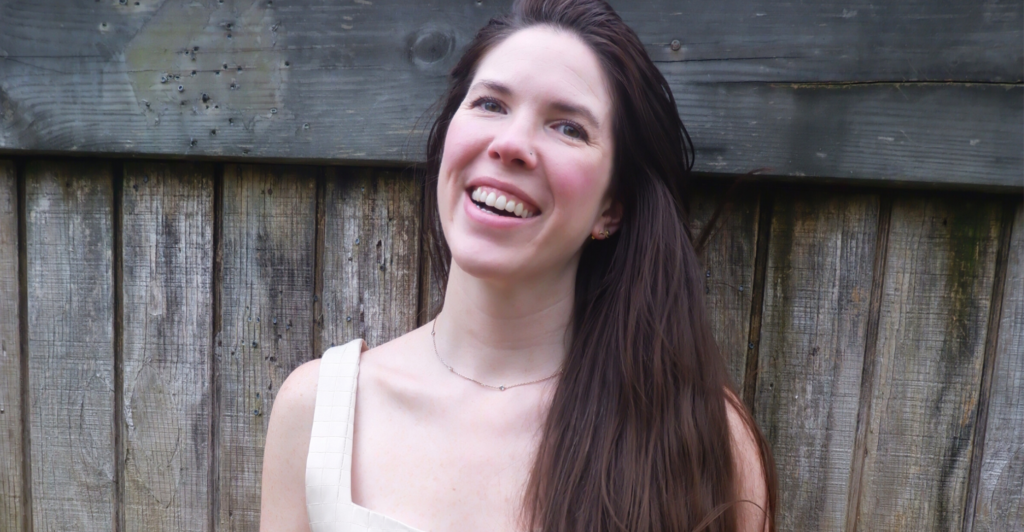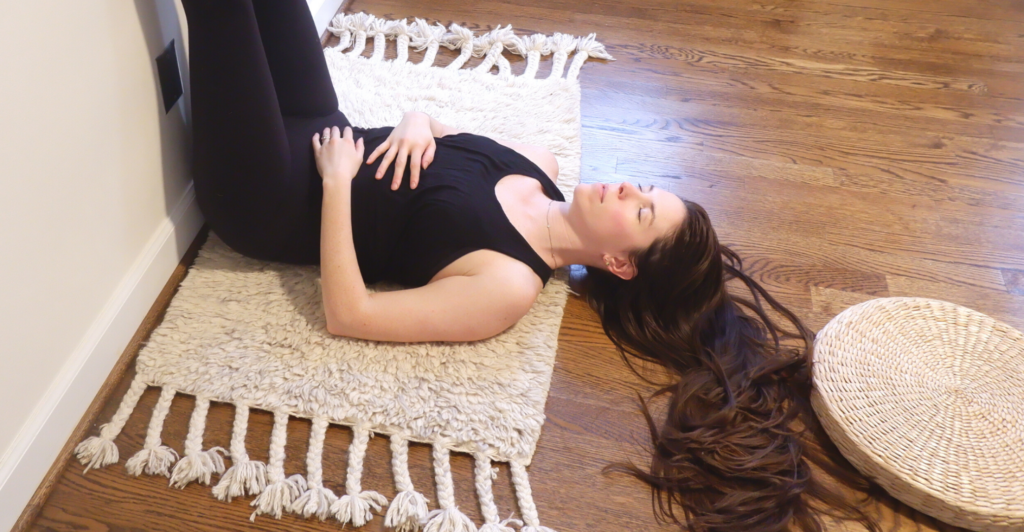How Ayurveda Creates Youthful, Beautiful Skin: Going Deeper With Rasa Dhatu
If you’re dealing with dry skin, acne, early wrinkling, early graying, or eczema, this one’s for you.
Today, we’re looking into the Dhatus. These are the seven tissue layers in the body, that everyone has. I like to think about these as Ayurveda’s body systems.
In addition to the three doshas governing the state of health in the body, the dhatus also play a large role in balance and health. One of the most wonderful things about Ayurvedic medicine is how individualized it can be. It will take into account your age, your own unique doshic constitution, your current state of imbalance, your lifestyle, stress levels, and all sorts of individually specific information.
Sometimes there’s so much focus on that personal version that the over arching truths that will work for all of us can get overlooked. When many of us think of Ayurveda, it conjures up images of healthy meals, and or a picture of three differently shaped women representing the three different doshas. And yes, these are big and beautiful parts of Ayurveda, but there’s a lot more to learn. Understanding what the dhatus are, being able to observe if they are in balance or not, and knowing how to strengthen them is so useful, practical, and wonderfully true for all of us.

What is Rasa Dhatu?
Let’s start with the very first dhatu, or the first tissue layer of the body, Rasa Dhatu. Rasa is all about what you digest, and needs your agni, or digestive fire, to be burning well. Rasa is the plasma portion of the blood that is responsible for transferring the nutrients absorbed in the intestines to the rest of the body. So already, we can see how what you’re eating, and how your digestion is going is going to have a big effect here. Rasa Dhatu is the clear part of the blood plasm, and it might be easier to think about it as water, or the general hydration of the body. Rasa is connected to the health of the skin, the mucus membranes and in women the breasts, uterus, and ovaries.
I’m going to give you a check list of disturbances that are related to an imbalance in rasa dhatu, and if several of them are sticking out to you then there’s a good chance this tissue layer needs some nurturing attention.
Signs of Imbalance in Rasa Dhatu
- Excessively dry skin. I’m not talking about the skin on your elbows being occasionally rough here. I’m talking about cracked lips that bleed. Very dry feet that crack open. That spot between your thumb and your pointer finger cracking. The meeting points of your fingers to your palms. Dry, dry, skin.
- Dehydration. To stick to the theme here, dehydration absolutely shows up on your skin. It can also show in in your urine. If urine is scanty, or dark it can be a sign of dehydration. There’s a reason those glow highlighter make up sticks got so popular! That’s a product designed to copy the natural glow of someone who is well hydrated, rested, and well balanced in rasa dhatu.
- Premature Graying of the Hair. This one is a tiny bit tricky because some doshic types will naturally gray before others. For example a person with a lot of vata in their constitution is most likely going to start graying before someone with a ton of pitta. However, if you were graying in your 20’s, that’s early.
- Cold Skin. As in, in general. If your feet and and hands are always cold, or if someone touches your arm and you are generally cold to the touch, you have cold skin! A snow day is not your sample here 🙂
- Wrinkling of the skin at an early age. I get it, these are a little bit tricky, like, what’s an early age here?? If you’re a college aged person with deep worry lines, that’s early. For those of us who are a little older now, and signs of aging are to be expected, you might think about when these started for you. For those of you with kids, I’m pretty sure I can guess the answer!

- Eczema. Not all types of eczema are the same. The type most directly related to rasa would be dry, icky, and scaly.
- Dizziness and Vertigo. Yuck. These two experiences are associated with a lack of rasa dhatu as well.
- Exhaustion, Weakness, and Tiredness. Another way to think about this is fluctuating energy levels and a lack of stamina. I’m talking about feeling this way daily, for an extended period of time. Often when it doesn’t seem to make sense to you. Meaning, I’m eating food that should make me feel good, and I’m going to be bed before 10 and getting 8 hours in the bed and I still feel tired. At that point we’d want to start looking at rasa dhatu, agni, and probably some other factors as well.
- Fluid Filled Cysts in the Breast or Ovaries. In this case, it only relates to rasa if it is fluid filled.
- A Congested Lymphatic System. How do you know if that’s you? There are a lot of signs for this one. If your fingers are swollen, you feel stiff when you wake up, you have brain fog and feel sluggish, your lymph nodes are enlarged or you feel like you get colds, allergies, and sinus infections often- it’s a good sign that congestion in present.
- Cough, Congestion or Excess Mucus and Colds. This is a piggy back of the last one, but if case you stopped paying attention after waking up feeling stiff I’ve got you covered. Perhaps you can see here how one side of the coin is too much rasa with excess mucus and fluid, and the other is depleted rasa with cough and dryness.
This list is a good one to check in with. If several of the above items were jumping out at you as consistently true then Rasa Dhatu might need some TLC.
How did Rasa Get Imbalanced in the First Place?
So, how did we get here? Before we look at ways to strengthen and balance Rasa lets better understand how it got upset in the first place. The health of rasa is all about good food and good digestion, so anything that gets in the way of that, especially for extended periods of time, is going to have an unbalancing effect.
Things that generally upset digestion are fasting, eating at strange times of day, and not drinking enough water. When I say fasting I’m talking about not eating, which is really hard on most peoples digestive fire. Ayurveda has her own way of fasting, which almost always involves some warm food to keep your agni, or digestive fire burning. If you’ve done a lot of juice fasting, or water fasting, or that lemonade cayenne pepper thing that was popular for a while, it could have caused damage. Sometimes trendy diet fads, even the ones that in the short term get results, create real problems in the long term.
What is Ayurveda & How Can It Help ME?
As far as eating at strange times, let’s say you only really eat one meal a day and it’s right before you got to sleep. That’s going to have an effect. The kinds of foods we eat matter too. If you’ve been eating a ton of dry foods like beans, crackers, dry cereals, popcorn, chips, and eating a lot of salt it’s going to be really hard on rasa dhatu. Hopefully that’s an easy connection to make. If rasa is all about hydration and transferring nutrients to the body and you’re giving her dry food with a weak digestive fire, she’s not going to have much to work with.
It’s also important to eat when you’re hungry and not skip meals. The opposite is true as well. Don’t eat when you aren’t hungry, too close to the previous meal, or before the food you’ve already eaten has had a chance to digest.
Lifestyle factors also have a strong effect on Rasa. Staying up really late at night and not getting enough sleep for extended periods of time can dry it out. In the same way, staying in a stressed out state of being, with lots of worry and fear will be very depleting to your rasa reserves. When we’re stressed out, worried, and tired we don’t breathe as well. We subconsciously hold the breath and breathe shallowly. This kind of breathing also upsets rasa.
How to Rebalance Rasa Dhatu
There is good news! There are lifestyle and dietary practices that can help replenish and balance rasa dhatu. I’m hoping that understand what rasa is, and what upsets it, will help you logically understand how these practices can help make it better.
So, what do we eat? If dry things deplete rasa then rehydrating foods and water will help. We want to take in plenty of pure water, and lots of juicy fruit and vegetables. Food can be simple and powerful medicine. Just imagine what it would feel like to switch from dry cold cereal and coffee in the morning to warm pure water with a cooked spiced apple. Can you feel how especially over a long period of time that’s going to have a big effect of your body and your hydration level? To jump start a rasa revival eat at least two sweet juicy fruits a day and drink lots of warm or room temperature water.

Healing Rasa with Lifestyle
Healing here is bigger than just what you eat. In your life, create ways to slow down and relax. That might look like yoga, or meditation, or nature walks, or family cuddles. Just to be super clear here, I a not talking about power yoga where you crank out as many chatarungas as you possibly can in one hour. Look for a class that allows you to feel and connect to your body, especially how energy or prana is moving through it.
Find time to connect to your breathing. This could be sitting down in a specific breath practice or even paying attention to your breath while you wash the dishes, or take a shower, or take a walk. There’s more than one way and I bet there’s a way that will fit well into the life you are already living. If you don’t know any breath practices here is one I’ve recorded for you. Sama Vritti pranayama or equal breath is a wonderful place to start. This is a simple and powerful practice where you make the breath in and the breath out equal in length and it has the wonderful effect of calming down the nervous system.
Healing Rasa with Sleep
I bet you can already guess that it’s going to be important to create more space for sleep. This can be bigger than just changing your bed time. Consider if the way you’re preparing for sleep is working for you or not. If it’s really hard to fall asleep once you’re in bed, it’s probably not. If you are falling asleep on the couch watching TV, and then when you move to the bed you’re wide awake that’s a good sign your wind down practice needs a reboot! Engage your senses to prepare for sleep. Drink something warm that smells good. Oil your feet. Turn off your screens! Experiment with what practices help you the most.
Healing Rasa for Glowing Skin
Abhyanga is also a huge go to tool here. It’s a great way to start building up hydration and nourishment to the skin and the tissues layers as well.
I know you want glowing skin and all the good things that come with a well nourished and well balanced rasa dhatu. I hope this information helps you get there. It’s so powerful to be able to recognize a symptom as a part of a larger issue and understand how to use food and lifestyle practices to wipe out an issue.
If you want to learn more about how to do that please check out the Intro to Ayurveda Course I made. It’s all about learning to understand this ancient science so you can understand what’s out of balance in your own life and have the tools you need to start correcting it. You’ll learn about the doshas, nutrition, and how this entire philosophy comes together in your own personal life.
Thank you for reading and learning, and as always, May all diseases be conquered as by a powerful forest fire!
This blog is also an Ayurveda Podcast you can listen to on Apple Podcasts.
